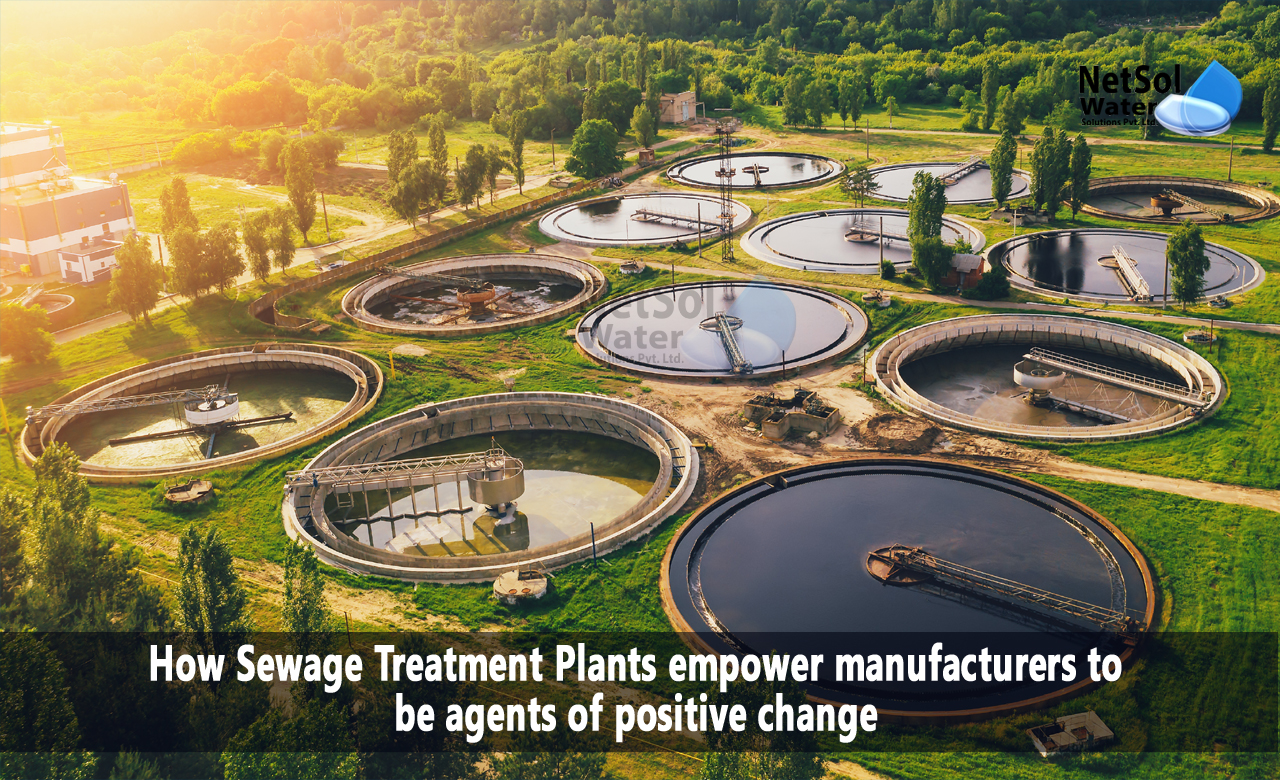How STP Plants empower manufacturers to be agents of positive change?
In today's world, manufacturers are increasingly embracing sustainable practices and taking proactive steps towards environmental responsibility. One key aspect of this commitment is the integration of sewage treatment plants within manufacturing facilities. Sewage treatment plants serve as powerful tools in enabling manufacturers to minimize their environmental impact, conserve resources, and work towards a cleaner future.
In this blog post, we will explore how sewage treatment plants empower manufacturers to be agents of positive change, contributing to a more sustainable and cleaner future for all.
1- Minimizing Environmental Impact:
Manufacturing processes often generate significant amounts of wastewater that can be detrimental to the environment if not properly managed. Sewage treatment plants play a crucial role in mitigating this impact by effectively treating and removing contaminants from the wastewater. These treatment facilities employ a combination of physical, chemical, and biological processes to ensure that the discharged water meets stringent regulatory standards. By investing in sewage treatment plants, manufacturers actively minimize the release of pollutants, protecting ecosystems, and preserving the quality of surrounding natural resources.
2- Water Conservation and Resource Efficiency:
Water scarcity is a growing concern globally, and manufacturers have a responsibility to optimize water usage and conserve this valuable resource. Sewage treatment plants enable manufacturers to adopt water conservation practices by treating and recycling wastewater. Treated water can be reused for various non-potable purposes within the facility, such as cleaning, irrigation, or even cooling processes. By implementing sewage treatment plants, manufacturers significantly reduce their reliance on freshwater sources, conserve water, and contribute to sustainable water management practices.
3- Circular Economy and Resource Recovery:
Sewage treatment plants facilitate the transition to a circular economy by enabling resource recovery from wastewater. Organic matter present in the wastewater can be converted into biogas through anaerobic digestion. This biogas serves as a renewable energy source, reducing the need for fossil fuel consumption and lowering greenhouse gas emissions. Additionally, valuable nutrients, such as nitrogen and phosphorus, can be recovered from the wastewater and repurposed as fertilizers or other industrial applications. By embracing sewage treatment plants, manufacturers actively participate in resource conservation, waste reduction, and the creation of a more sustainable circular economy.
4- Compliance with Regulations and Social Responsibility:
Compliance with environmental regulations is essential for manufacturers, ensuring that their operations meet stringent standards and do not harm the environment or public health. Sewage treatment plants play a critical role in enabling manufacturers to meet these regulations by treating wastewater to the required quality before discharge. By investing in these plants, manufacturers demonstrate their commitment to social responsibility and ethical practices, aligning their operations with sustainable development goals. Compliance with regulations not only protects the environment but also enhances the reputation and credibility of manufacturers as responsible corporate citizens.
5- Driving Innovation and Collaboration:
The integration of sewage treatment plants within manufacturing facilities fosters innovation and collaboration within the industry. Manufacturers are encouraged to explore and implement advanced treatment technologies and sustainable practices. This drive for innovation leads to the development of more efficient and effective wastewater treatment solutions. Furthermore, collaboration between manufacturers, technology providers, and research institutions can lead to knowledge-sharing and the advancement of sustainable manufacturing practices as a whole. By embracing sewage treatment plants, manufacturers become catalysts for innovation and contribute to a collective effort towards a cleaner future.
Conclusion:
Sewage treatment plants empower manufacturers to be leaders in environmental sustainability and responsible manufacturing practices. By treating wastewater, conserving water resources, enabling resource recovery, and ensuring regulatory compliance, manufacturers play a significant role in creating a cleaner future. These plants not only minimize environmental impact but also drive innovation, foster collaboration, and enhance corporate reputation. By embracing the power of sewage treatment plants, manufacturers can actively contribute to a sustainable and cleaner future for generations to come.
Netsol Water is Greater Noida-based leading water & wastewater treatment plant manufacturer. We are industry's most demanding company based on client review and work quality. We are known as best commercial RO plant manufacturers, industrial RO plant manufacturer, sewage treatment plant manufacturer, Water Softener Plant Manufacturers and effluent treatment plant manufacturers. Apart from this 24x7 customer support is our USP. Call on +91-9650608473, or write us at enquiry@netsolwater.com for any support, inquiry or product-purchase related query.



